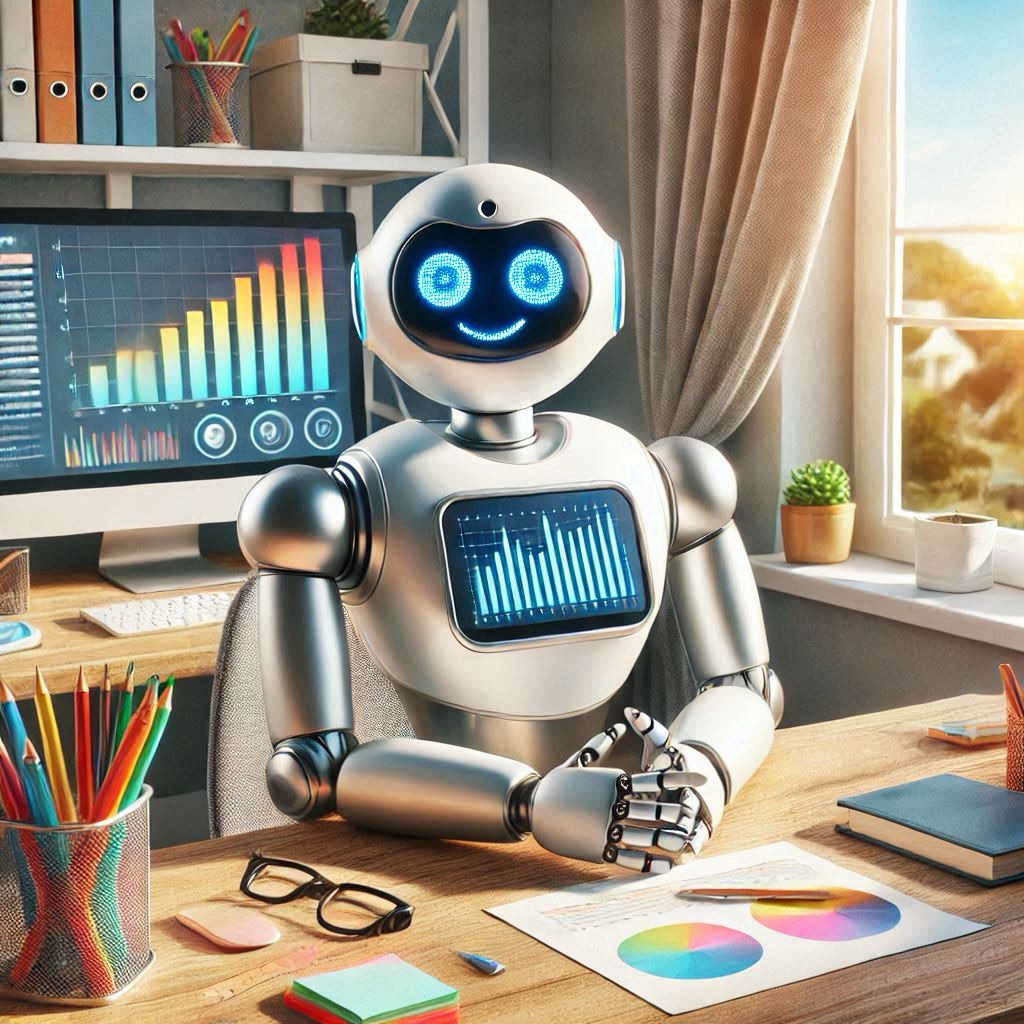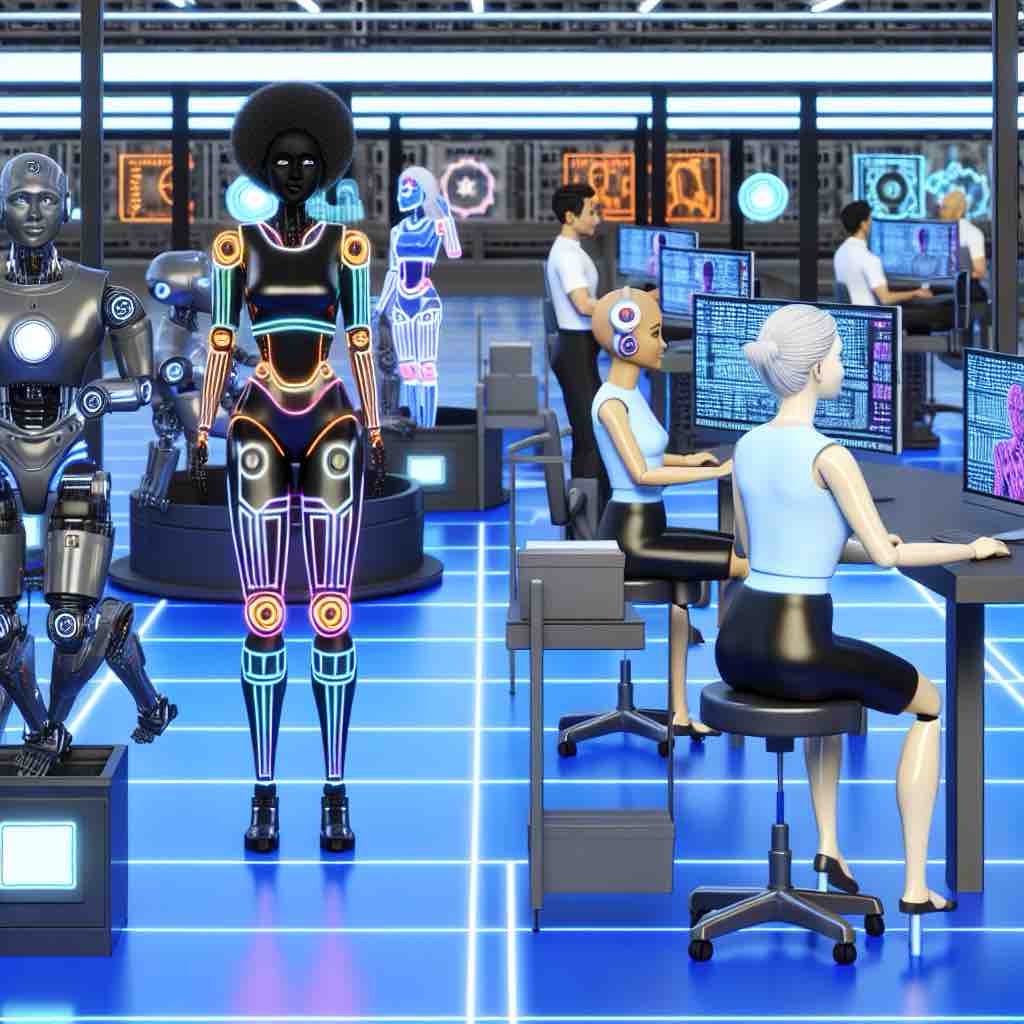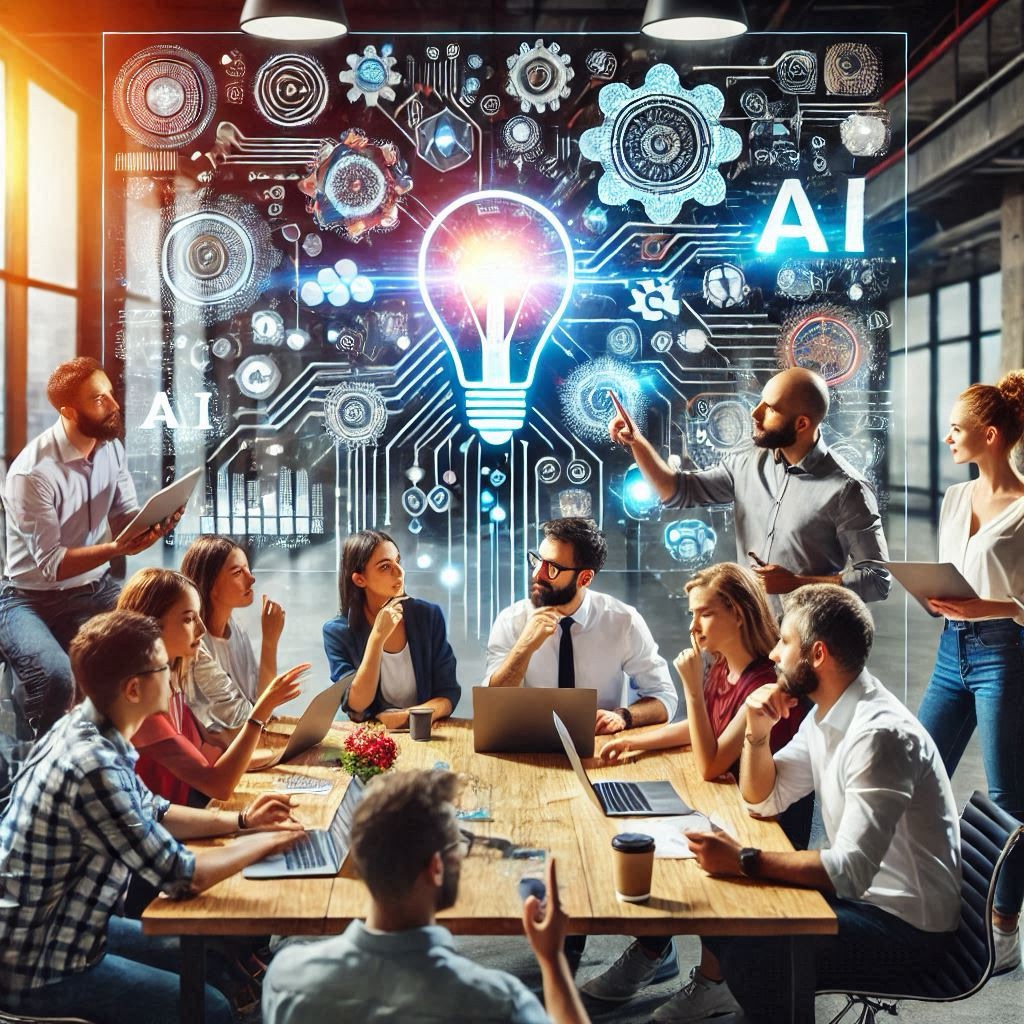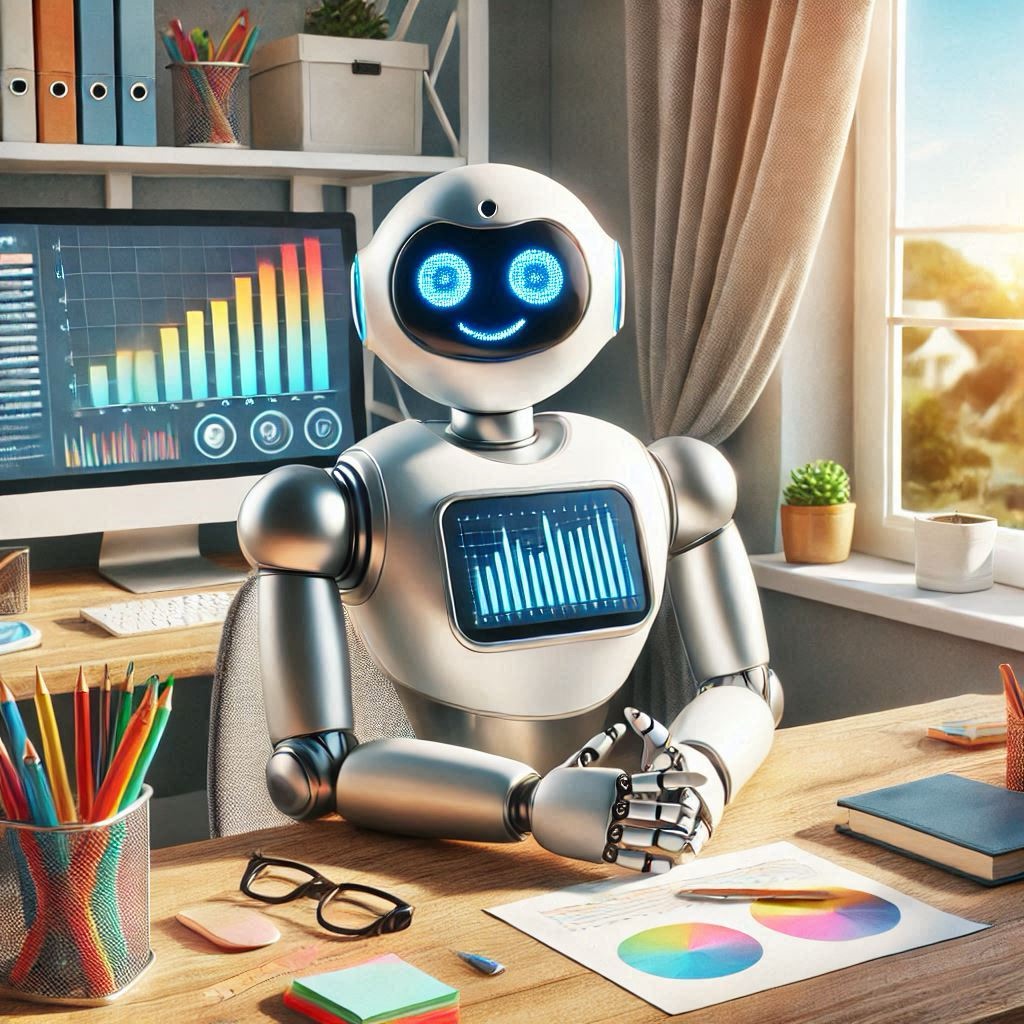I am recently retired. When I started working,
The integration of artificial intelligence (AI) into the workforce is reshaping industries, offering significant opportunities while posing notable challenges.

AI-driven automation enhances productivity by taking over repetitive, manual tasks, freeing workers to focus on more strategic and creative responsibilities. For example, in manufacturing, AI-powered robotics improve efficiency and reduce errors, while in healthcare, AI streamlines diagnostics and administrative processes. Additionally, AI fosters innovation and creates new roles in fields like data science, machine learning, and AI ethics. Businesses are investing in upskilling and reskilling programs to equip workers with the technical knowledge needed to thrive in an AI-driven economy.
However, the adoption of AI also brings challenges. One of the most significant concerns is job displacement, particularly in industries heavily reliant on routine tasks. Many workers may face unemployment or underemployment unless they adapt to changing demands. Moreover, the widening skills gap between those equipped for AI-related roles and others exacerbates inequality. Ethical considerations, such as data privacy, algorithmic bias, and transparency, further complicate AI’s implementation in the workplace.
While AI holds the promise of a more innovative and efficient global workforce, ensuring a fair transition will require collaboration among governments, businesses, and educators to address the challenges and harness the full potential of this transformative technology.

### Opportunities and Challenges AI Brings to the Global Workforce
**Opportunities:**
1. **Increased Efficiency and Productivity**: AI can automate repetitive and mundane tasks, allowing human workers to focus on more complex and creative tasks. This boosts overall productivity and enables businesses to operate more efficiently.
2. **Enhanced Decision-Making**: AI can analyze vast amounts of data and provide insights that support informed decision-making. This can lead to better business strategies, improved customer experiences, and optimized operations across various industries.
3. **Job Creation in New Fields**: The rise of AI has led to the emergence of new job roles, such as AI specialists, data scientists, and machine learning engineers. These positions offer exciting career opportunities for individuals with the right skills and knowledge.
4. **Improved Healthcare**: AI has the potential to revolutionize healthcare by enabling early diagnosis, personalized treatment plans, and efficient management of medical records. This can lead to better patient outcomes and a more effective healthcare system.
5. **Enhanced Customer Service**: AI-powered chatbots and virtual assistants can provide instant customer support, answer queries, and resolve issues. This improves customer satisfaction and frees up human agents to handle more complex interactions.
6. **Innovation and Creativity**: AI can assist in generating new ideas and solutions across various fields, from art and music to scientific research and engineering. This fosters innovation and opens up new avenues for creative expression.
**Challenges:**
1. **Job Displacement**: The automation of tasks through AI can lead to job displacement, particularly in industries that rely heavily on routine and manual labor. This can result in workforce restructuring and the need for reskilling and upskilling programs.

2. **Ethical and Bias Concerns**: AI systems can inherit biases present in the data they are trained on, leading to unfair and discriminatory outcomes. Ensuring AI is used ethically and addressing bias in AI models are critical challenges.
3. **Privacy and Security**: The use of AI often involves the collection and analysis of large amounts of data, raising concerns about privacy and data security. Protecting sensitive information and ensuring compliance with data protection regulations is essential.
4. **Skill Gap**: The rapid advancement of AI technology has created a skill gap in the workforce. There is a growing demand for individuals with expertise in AI and related fields, and addressing this gap through education and training is a significant challenge.
5. **Dependence on Technology**: As businesses and industries increasingly rely on AI, there is a risk of over-dependence on technology. Ensuring human oversight and maintaining a balance between AI and human input is crucial to avoid potential pitfalls.
6. **Regulatory and Legal Issues**: The implementation of AI raises various regulatory and legal questions, such as accountability for AI decisions, intellectual property rights, and compliance with existing laws. Navigating these complex issues is a key challenge for policymakers and businesses.
In summary, AI brings both opportunities and challenges to the global workforce. While it has the potential to drive innovation, improve efficiency, and create new job opportunities, it also requires careful consideration of ethical, privacy, and regulatory concerns. Balancing the benefits and addressing the challenges will be essential for harnessing the full potential of AI in the workforce.
